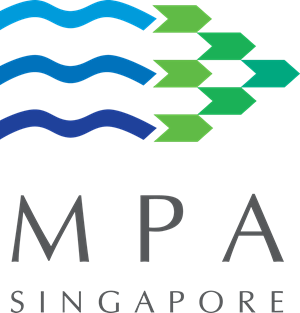The challenge
Why green methanol matters
This project is funded by ASLET, a CSIRO-led initiative co-delivered with MPA Singapore and supported by the Australian and Singaporean Governments.
Shipping moves around 90 per cent of global trade and contributes nearly 3 per cent of global greenhouse gas emissions. With the International Maritime Organization (IMO) targeting net zero by 2050, the industry faces a complex transition to alternative green fuels.
Green methanol — produced from organic waste (bio-methanol) or by combining green hydrogen and captured CO2 (e-methanol) — offers a promising solution. However, widespread adoption is constrained by limited supply, infrastructure gaps, high retrofitting costs and regulatory uncertainty.
Methanol-handling capabilities are currently limited to a small number of ports, and green methanol remains in short supply. Supporting infrastructure — such as pipelines, storage tanks and refuelling stations — is also underdeveloped.
Despite these challenges, decarbonising shipping could accelerate renewable energy investment and unlock economic opportunities for Australia.
Our response
From feasibility to future-ready
This pre-feasibility study explores how green methanol can be transported, stored and used as fuel for short-sea vessels. It focuses on methanol produced by the proposed Solar Methanol 1 (SM1) demonstration plant near Port Augusta, South Australia.
SM1 aims to produce approximately 7,500 tonnes per annum of e-methanol using renewable energy, electrolysis-derived hydrogen and captured industrial CO2.
Led by Vast Renewables through its Hyfuel Solar Refinery subsidiary, the project is exploring the technical, infrastructure, regulatory and commercial readiness required to adopt green methanol in maritime operations.
While the initial focus is on Australian short-sea vessels, the long-term vision is to expand supply to Singapore and beyond through larger-scale projects in Western Australia and the Americas.
The results
Fuelling the future without fossil fuels
The project is being delivered in multiple phases, each addressing a key area of readiness:
- Technical readiness has defined standards and design options for methanol-ready engines and storage facilities.
- Infrastructure readiness has evaluated port, transport and storage capabilities.
- Regulatory readiness has examined policy settings and calculate lifecycle emissions reductions.
- Commercial readiness has explored market dynamics, competitor activity and viable business models.
- Knowledge sharing will ensure insights are shared with port users in Australia and Singapore to support uptake and strengthen international collaboration.
By identifying barriers and opportunities in the rollout of green methanol for short-sea vessels, the project aims to help reduce costs and accelerate adoption. The study supports increased uptake through cross-border value chains and stakeholder engagement.
Ultimately, demonstrating the viability of Australian-produced green methanol will build industry confidence and improve supply chain readiness.
Strengthened collaboration between Australian and Singaporean ports will further drive investment and support the transition to low emissions maritime fuel.
Want to learn more?
Contact the project team: hyfuel@vast.energy

